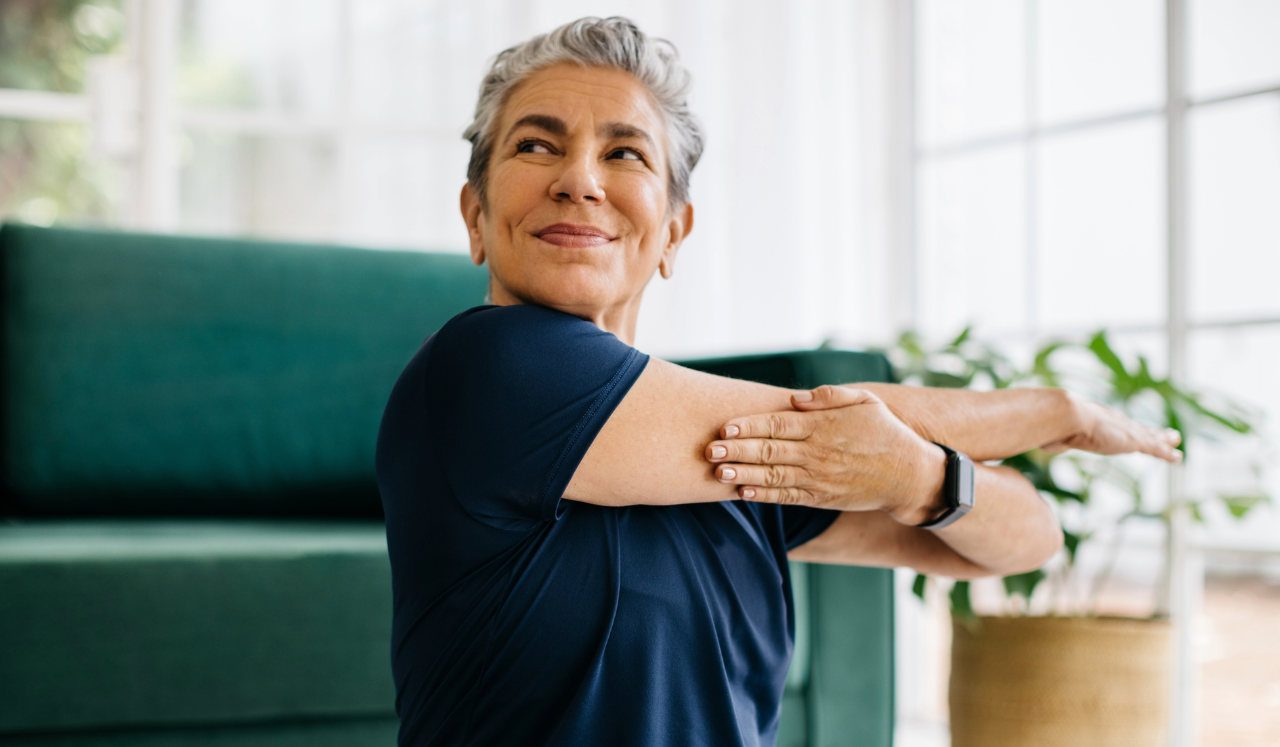Whether you’re trying to exercise more, improve your diet or stick with a new goal, it can be difficult to stay consistent on your own. Having someone to talk to about the highs and lows is valuable when you’re trying to reach a goal, and that’s where an accountability partner can make a real difference.
Gabrielle Hargrove, a licensed professional counselor at Memorial Hermann, explains how accountability partnerships—whether in the gym, the workplace or in everyday life—help people stay motivated, improve follow-through and create lasting healthy habits.
Why Accountability Matters
Having someone to check in with is one of the strongest motivators for change. The Community Preventive Services Task Force reports that social‑support interventions (such as buddy systems, partner contracts and walking groups) lead to significant increases in physical activity among adults.
Hargrove has seen the same dynamic at work in her own life. “People work better in groups or in pairs. Two minds are better than one,” she says. “When you’re just sitting with your own thoughts, you can become isolated. Bringing in another person gives you new ideas, motivation and perspective.”
Those outside voices, whether they come from a workout partner, colleague or friend, can help you push past procrastination and remember your “why.” “For the procrastinators, an accountability partner can be that little voice saying, ‘I’m going to be here waiting for you. I expect you to show up,’” Hargrove says. “They’re good physical reminders of why we’re doing what we’re doing.”
Staying on Track
Check-ins and encouragement are key to maintaining momentum. Hargrove describes how her gym friends keep her motivated: “Usually around 4:30 or 5 p.m., we’re texting like crazy. ‘Are you going to the gym? I can’t wait to see you!’ This keeps my group accountable and excited to work out!”
Accountability probably won’t look the same for everyone. Ultimately, it depends on the goals you’re aiming to accomplish. For some, it might be a workout buddy or walking group, whereas others might have a coworker who checks in about hydration or nutrition goals. The important thing is having someone who genuinely cares about your progress and who isn’t afraid to light a fire under you if need be.
Social support plays a vital role in promoting healthy behaviors. Besides holding you accountable to showing up for workouts, people with strong social connections tend to be more resilient, more productive and less stressed, which benefits both mental and physical health.
Giving and Receiving Feedback
Accountability partners aren’t just cheerleaders; they also provide constructive feedback as needed and are willing to get in the mess with you. But that only works if there is trust. “If you trust your accountability partner, you can receive feedback from them, even if it’s hard to hear,” Hargrove says. “It can be difficult to receive feedback, but knowing their communication style and believing they have your best interest in mind makes it easier to accept.”
Social accountability improves adherence to healthy behaviors because it blends positive reinforcement with self‑reflection. Effective partners don’t judge. Instead, they remind, encourage and redirect when needed.
Healthy Competition and Positive Encouragement
While a little competition can be healthy, it should never be about outdoing someone else. “Try to focus on competing against yourself rather than other people,” Hargrove advises. “Remember, everyone is on their own path. Instead of trying to outdo other people, you should use that energy to push yourself to be the best version of you.”
The idea of an accountability partner, she explains, does not draw on competition but rather challenges you in a partnership where you work alongside each other. “You’re walking together in your goals. Your goals may be different, but you’re still on parallel paths, motivating each other forward and supporting when one of you falters.”
For older adults, exercising with a partner increases adherence to physical activity routines compared with exercising alone.
How to Find an Accountability Partner
The best partnerships often happen naturally. “For me, it’s organic,” Hargrove says. “In group fitness, when people see you every day, you develop a sort of friendship. Then it can turn into a ‘Hey, I’m holding you accountable, so you better not skip the gym today!’ type of relationship.”
Remember, accountability partners can come in many forms. They could be a trusted friend, colleague, workout buddy or even a counselor or coach. What matters most is connection and shared commitment. “It’s based on trust,” Hargrove says. “You wouldn’t let just anyone talk to you about your goals. You need someone who’s focused, goal-driven and motivated to improve themselves, too.”
Some places you can look for an accountability partner include:
- Shared activities: Join a class, club or group where you’ll meet people with similar goals.
- Work or school: Look for colleagues or classmates who are also working towards a goal.
- Online communities: If meeting in person is difficult, try virtual groups or apps that facilitate peer support.
- Professional support: Therapists, trainers or coaches can serve as structured accountability partners if you prefer a more formal approach.
No matter what your goal looks like—better health, consistent exercise or stress management—an accountability partner can be a game changer. As Hargrove puts it, “They help motivate you to be your best, give you guidance and help you achieve your goals.”

